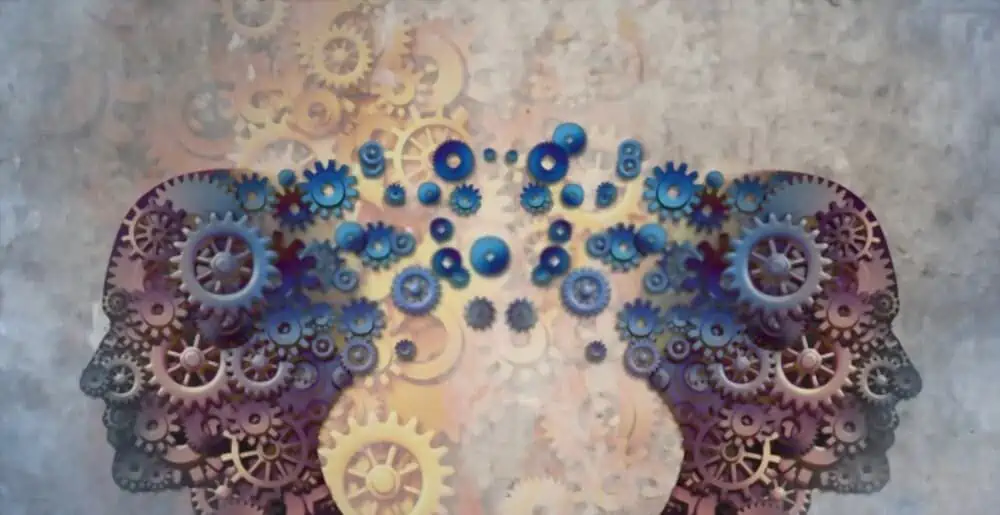Procuring a license as a psychologist can be a challenging process, and some states within the United States come with peculiar details that can make the ride even more rigorous.
These are states already known for their strict requirements and the often arduous processes they subject potential psychologists to.
These states are challenging because they require unusually complex prerequisites and arduous examination modalities. But no hard feelings; it is simply a way of ascertaining your dedication, determination, and professional competence.
This article explores everything you need to know about getting a psychologist license, the hardest states, and what it takes to get it. Shall we?
What Does it Take to Get Licensed?
Becoming a licensed psychologist in the United States requires a relevant educational qualification and a demonstrated commitment to professional best practices. The process comes with various modalities to ensure professionals know their stuff and have the requisite skills to provide excellent psychological services to the people.

- Education: It starts with a doctoral degree in Psychology, usually a PsyD (Doctor of Psychology) or a Ph.D. (Doctor of Philosophy). These programs take four to seven years, including coursework, research, and supervised clinical training.
- Accreditation: It is essential to ensure that the program you graduated from is accredited by the American Psychological Association (APA) or an institution with regional accreditation. This way, you can show that your education aligns with national standards.
- Supervised Experience: There’s a need to complete a supervised postdoctoral experience, which often takes one to two years. It involves practical exercise in a clinical environment and under the supervision of a licensed psychologist.
- Examination: There’s something known as the Examination for Professional Practice in Psychology (EPPP). It is a standardized test that evaluates your knowledge of psychology and its applications. To get licensed in certain states, you have to pass this exam.
- State Licensing Board: Every state has its licensing committee and fixes unique requirements for licensure. These may include further exams like state jurisprudence exam, background profiling, and application payments.
- Ethics and Jurisprudence: Another essential value a potential psychologist must demonstrate is an understanding of ethical principles and legal regulations surrounding the practice of psychology. This may require you to pass an ethics examination or complete coursework in professional ethics.
- Continuing Education: While it is one thing to get licensed, it is another to remain so. This is why psychologists must participate in current professional development. You stay updated on new professional developments by attending workshops, conferences, and courses.
- Specialization: Most psychologists want to specialize in clinical, counseling, school, or organizational psychology. Specialization usually demands more training and supervised experience.
- Licensing Renewal: Depending on the state, licenses are usually renewed every one to three years. Renewal requires staying updated on new advancements and adhering to ethical guidelines.
- Optional Certifications: You can get optional but relevant certifications to solidify your expertise in specialized areas. There’s nothing terrible about becoming a Board Certified Behavior Analyst (BCBA) or a certified school psychologist (CSP).
Factors Affecting the Difficulty of Licensure
The difficulty of licensure in the United States stems from different factors, which indicate the complex requirements and level of competence expected of aspiring psychologists. Below are factors affecting this difficulty.
- Educational Requirements: Rigorous doctoral programs can have a remarkable impact on the difficulty of licensure. Programs with broad coursework, research, and clinical experience tend to produce better candidates, while less intensive ones can leave candidates inadequately prepared for licensure examinations.
- Supervised Experience: Different states have different requirements for postdoctoral experience. Exhaustive supervision requirements can extend the licensure process and pose a significant problem, especially when few opportunities exist.
- Examination Rigor: The Examination for Professional Practice in Psychology (EPPP) is an important step. Licensure could be difficult depending on the competitiveness of the exams and the rate of passes. Ultimately, states get to fix their pass marks.
- State-Specific Requirements: Each state has unique prerequisites, including additional exams, coursework, and supervised hours. States with extraordinary requirements will prove harder for aspiring psychologists.
- Demand and Competition: States with a high demand for mental health services may have a difficult licensing process due to wide competition and needing the best hands on deck.
- Ethical and Jurisprudential Understanding: It is crucial to display a thorough understanding of ethical guidelines and legal regulations. The Licensing process can get a lot tougher for those without an understanding of the ethical modalities surrounding the practice of psychology.
- Continuing Education: A psychologist who wants to maintain licensure must be given ongoing professional development. Dedication to continuing education requirements can be a big deal, especially for those in busy practices.
- Specialization Complexity: Specialties like forensic or clinical psychology might demand further training and certifications, complicating the licensure process.
- Geographic Differences: Licensure difficulty can vary from region to region due to differences in state regulations, population density, and need for mental health services.
- Licensing Board Stringency: Some state licensing boards take a more intensive approach to scrutinizing applications, which can toughen the process. Boards with extensive review details can make licensure difficult.
- Professional Support: Proper mentorship, resources, and access to support systems can lessen licensure difficulty, while the lack can exacerbate it.
Hardest States to Get Licensed as a Psychologist

Getting licensed as a psychologist in the United States is no mean exercise. However, it is more challenging in some states than in others. Here, we closely examine the hardest states to get licensed as a Psychologist.
- California: Known for its extreme regulations, California requires candidates to have postdoctoral supervised experience, pass a competitive state-specific exam, and meet precise ethical standards.
- New York: Considering the high population density and incredible competition, it makes sense that New York requires completing a doctoral program, extensive supervised experience, and passing the EPPP and a state jurisprudence exam.
- Massachusetts: The licensing process in Massachusetts includes a written and oral examination, outstanding postdoctoral supervised experience, and a concentration on in-depth professional guidelines.
- Illinois: Illinois presents several challenges to aspiring psychologists in that it requires a combination of supervised practice, written exams, and total compliance with ethical guidelines.
- Florida: Apart from the regular requirements, Florida demands completion of the Florida Laws and Rules Examination, which further toughens the licensing process.
- Texas: With its sizable population and various licensing methods, Texas requires rigorous supervised experience, oral and written exams, and state-specific jurisprudence tests.
- Connecticut: A Psychologist looking to get licensed in Connecticut must have postdoctoral supervised experience, pass written and oral exams, and demonstrate ethical competence.
- Pennsylvania: The Keystone State requires intensive supervised experience, a rigorous application process, and adherence to strict ethical principles.
- New Jersey: Apart from completing supervised hours and passing a jurisprudence exam, New Jersey requires a thorough understanding of its Mental Health Services Act.
- Ohio: Renowned for its stringent criteria, Ohio requires candidates to complete a doctoral program, possess postdoctoral experience, pass necessary exams, and adhere to strict ethical standards.
Easiest States to Get Licensed as a Psychologist
While there are states with licensure difficulty, there are a few other ones with comparatively easier processes. The list includes
- Wyoming
- Mississippi
- Missouri
- Kansas
- Indiana
- Montana
- North Dakota
- Louisiana
- New Mexico
- Nebraska
Conclusion
When it comes to psychology licensure, certain states present more challenges due to their extensive requirements. States in this category include California, New York, and Massachusetts, requiring candidates to undergo intensive postdoctoral supervised experiences, specialized exams, and strict ethical guidelines.
Although the road to licensure is often tough in these states, it only indicates the dedication, competence, and ethical commitment expected of professionals within the field.
Professionals who can scale through the complex licensure process of these states demonstrate that they are worth their salt and possess the resilience required to provide top-notch mental health services while bettering lives and improving society as a whole.

Sam is a brilliant young Nigerian biochemistry student and an aspiring entrepreneur. Despite facing many challenges, he has never lost his passion for learning and drive to make a difference in the world. Read more about him here.